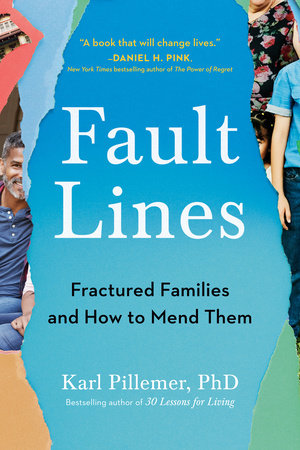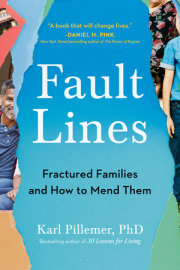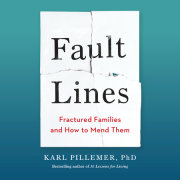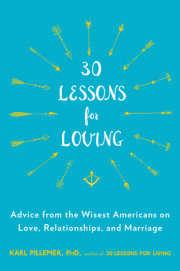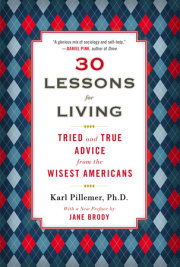Once there was a boy named Christopher Robin. His greatest joy was to wander in the Hundred Acre Wood with his friends: the little bear named Winnie-the-Pooh, Piglet, Rabbit, Kanga, Roo, Eeyore, and other quirky, lovable animals. Christopher Robin participated in their many adventures and misadventures, living an enchanted childhood in a se-cure, benign world. My guess is that you read and loved these stories as a child (and watched the many movies based on them). If you are of a cer-tain age, you have read them to your children and grandchildren. You probably know that the stories are based on a real person: Christopher Robin Milne. The real Christopher Robin’s father, the author A. A. Milne, wrote the stories for his son’s enjoyment, based on Christopher Robin’s menagerie of stuffed animals. The setting was a lovely forest near the family’s summer house where father and son wandered and played together. We see these stories as testimony to the love of a father for his son, bringing his childhood fantasies to life. We imagine the warm, loving relationship that Milne and the real Christopher Robin must have had.
What you may not know about Christopher Robin Milne is this: He became estranged from his father, and they remained alienated throughout their lives. Milne believed that his father had stolen his childhood. By early adulthood, he felt that his father had never approved of him because he was not living up to the family name. From the vantage point of midlife, the younger Milne leveled the accusation that his father “had got where he was by climbing on my infant shoulders, that he had filched from me my good name and had left me with nothing but the empty fame of being his son.” The estrangement extended to his mother, whom he did not see for the last decade of her life. The feeling was apparently mutual, as his mother pointedly refused a last visit from Christopher when she was on her deathbed.
Given this family’s fame, why aren’t these facts well known? For the same reasons that you do not know about your friends, neighbors, and co-workers who are in precisely the same situation right now. Shame, isolation, and embarrassment pervade family estrangements. In a society in which few topics are taboo, most people in a family rift feel so alone that they avoid speaking about it even to their intimate friends. Estrangement is hidden within the confines of the family and, when revealed, implies failure, poor judgment, and suspicious family secrets. As reported by many people in this book, revealing an estrangement from a parent, a child, or another close relative leads other people to silently wonder, What’s wrong with you?
When I began my interviews with estranged people, I was not aware that they experienced such an acute sense of shame and isolation. One of my first interviews revealed the stigma attached to estrangement and gave me a powerful goal for this book.
Roy Shaw has never given up trying to maintain a relationship with his parents, despite periods of estrangement that have lasted years. His story, of which you will learn more later in these pages, is complex, involving a difficult childhood, rejection of his wife by his parents and sister, and dueling views of past events. I was struck by the degree to which Roy felt deeply alone. He told me:
There’s been many times where I have felt like I have the worst family situation ever. I know that’s not true, but when I’ve had some irrational moments, I think that my situation is the most bizarre, the weirdest that could ever happen. If I could hear from other people who have had family complexities like this, it would help to know that I’m not alone, that every family has issues. And I would certainly be able to let them know that they’re not alone if they heard my story.
The goal of this book is to bring the topic of estrangement out of the shadows and into the clear light of awareness and discussion. By mining the wisdom of hundreds of people who have experienced this problem, I will offer new insights, data, strategies, and practical tips for coping with and healing family rifts. Not all these ideas will apply to everyone, and some readers may fail to find solutions or will disagree with the advice offered here. However, I will feel that my years of work on this project and book are justified if I am successful in this one goal: creating an environment where people can freely acknowledge the problem and open up about solutions in productive and positive ways. If I accomplish nothing else, I want to reassure you that your family’s situation is not the worst or the weirdest in the world, and that you are not alone.
Copyright © 2020 by Karl Pillemer, Ph.D.. All rights reserved. No part of this excerpt may be reproduced or reprinted without permission in writing from the publisher.

